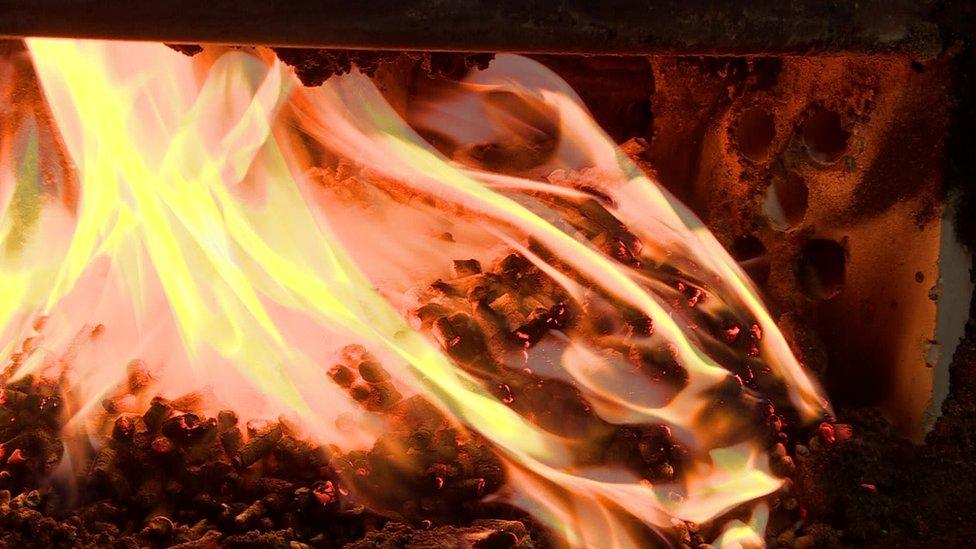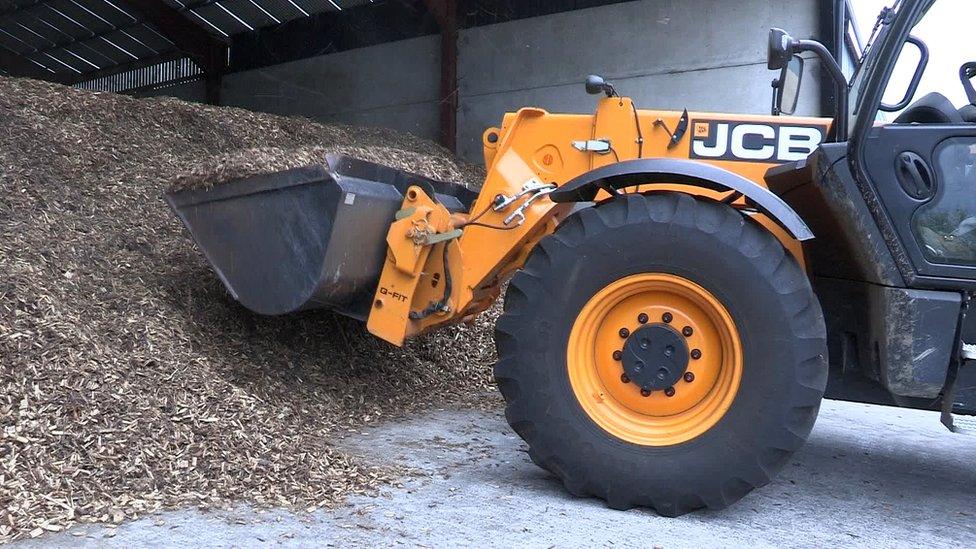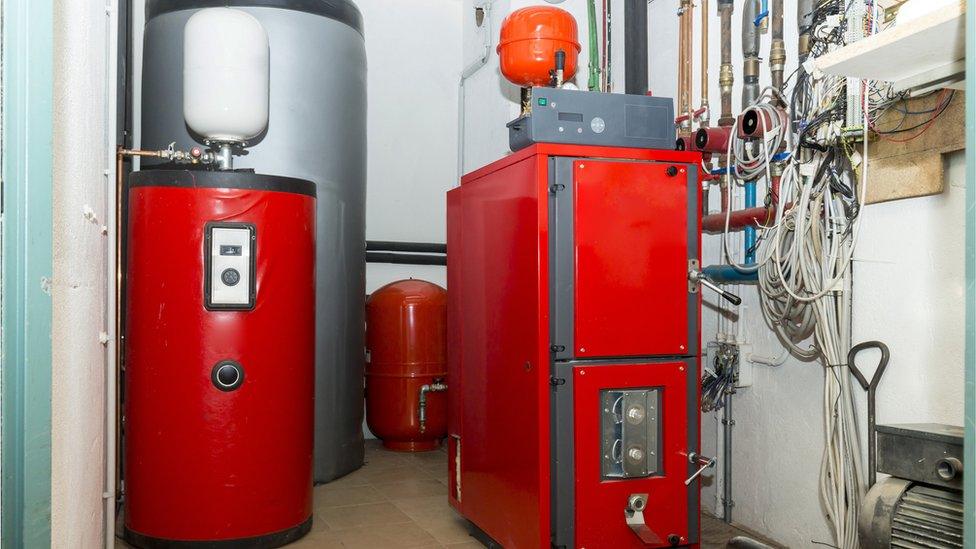RHI scheme 'cost £300m more than alternative'
- Published

A public inquiry is being held into the flawed Renewable Heat Incentive scheme
An inquiry into a botched renewable heating scheme has demanded to know why economists who approved it did not consider an alternative that was hundreds of millions pounds cheaper.
There were two options at the outset: the Renewable Heat Incentive (RHI) scheme and the Challenge Fund.
The Challenge Fund was rejected as the administrative costs were £5m in contrast to £1.5m for the RHI.
RHI was chosen even though its overall cost was £300m more than the other.
The government scheme, which started in 2012, helped collapse the Northern Ireland Assembly in January.
It encouraged businesses to switch from fossil fuels to biomass or woodchip.
But a lack of cost controls meant it could have an overspend of £700m over 20 years.
Value for money?
The inquiry wants to know why officials were prepared to spend £300m in order to save £3.5m in administration costs.
On Wednesday, a senior economist from Stormont's enterprise department was asked questions about the rationale for the decision.
Shane Murphy was the line manger for the economist who gave the RHI scheme approval for "value-for-money".

The subsidy offered to businesses switching to biomass boilers was higher than the cost of the fuel
Mr Murphy said an economist's role was not to investigate options, but to adjudicate on the one with which they were presented.
Spending decisions within government might seem "strange" to "outsiders", he said, but they were governed by "rigid" rules.
If a building project was ruled out for design reasons, an economist would not suggest building it a different way, he added.
Similarly, he said, if an economist was told a scheme would not work because of budgetary issues then "he was not in a position to question that".
When the RHI scheme was brought to a peer review committee in 2012 as part of the approval process there was no direct comparison of costs between it and the Challenge Fund.
Inquiry chairman Sir Patrick Coghlin asked Mr Murphy where the evidence was that the economist had "done the number crunching" or exercised his expertise to ensure that the final decision on the right scheme was "properly and rationally informed".
'Significant monitoring failure'
Mr Murphy has told the inquiry in his written evidence the his department had information that pointed to emerging problems in the scheme, two years before it ran into major trouble.
He said the material he had seen indicated a "significant failure of monitoring", showing that the tariff was "massively out of kilter" and yet it had not been reviewed or changed.
When the scheme became a budget crisis, Mr Murphy was asked to help prepare a fix.
As part of that work he reviewed data provided to officials in the enterprise department in the summer of 2013.
It included information about the capacity and the run times of boilers accredited to the scheme.
In his statement to the inquiry Mr Murphy said although there were only about 35 of them at that stage a pattern of use was emerging.

Some claimants profited from the scheme by using their boilers for longer than was intended
It showed that bigger boilers were being installed and they were being run for much longer than the assumptions on which the subsidy had been calculated.
It had been set on the basis that 50kw boilers would be used 17% of the time.
In fact, boilers twice that size were the ones generally installed and they were commonly running for between 40% and 60% of the time.
Mr Murphy said in May and June 2015 finance staff in the enterprise department were frustrated by a delay in controlling costs.
He said that was because it took colleagues in department's energy division until October to work up a proposal to change tariffs.
He said that in the context of those changes the energy division did not "reveal or think to reveal" that there had been whistleblowing allegations.
Mr Murphy said there was a civil service rule that any scheme in which the outcome diverged from the assumptions it had been based on by more than 10% should be flagged.
The fact that that did not happen been suggested that the RHI scheme had in effect been operating a scheme outside of "approval conditions" provided by the finance department, he added.
- Published7 November 2017

- Published7 November 2017

- Published23 October 2019
